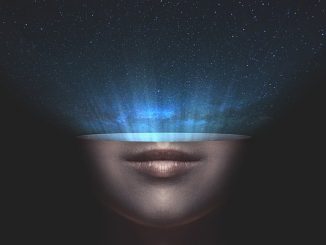
“We’re going to get more neocortex, we’re going to be funnier, we’re going to be better at music. We’re going to be sexier. We’re really going to exemplify all the things that we value in humans to a greater degree.”
Those are the exact words of well-known futurist and Director of Engineering at Google, Ray Kurzweil, in an SXSW (short for South by Southwest) interview a few days ago. He is talking about the singularity, of course. And compared with the ominous predictions of other notable personalities, Kurweil’s outlook seems much more appealing.
The singularity (or technological singularity) is defined as that moment when as a result of technological advances, artificial intelligence surpasses human intelligence, and establishes itself as the new super intelligence. Simply put, it’s that time when machines become smarter than any human.
There’s no denying that we’re heading towards that direction, and that we’re moving closer and closer towards singularity. As Kurzweil said: “It’s here, in part, and it’s going to accelerate.”
While some have predicted that it will happen by 2045 – 2047, Kurzweil says it will happen sooner — by 2029 to be exact. The question is: should we be frightened or should we be excited?
Maybe the influence of sci-fi movies has a hand in it somehow. But it’s hard not to be terrified of the idea that robots will one day threaten our existence. And when that fear is echoed by well-respected critical thinkers like Elon Musk, Stephen Hawking and Bill Gates, the prospect of such future becomes even more real and terrifying. Which is why Kurzweil’s perspective is such a welcome change.
For starters, he’s saying that it’s unrealistic to believe science fiction’s version of the singularity — of one or a few super AIs taking over the world. Because we don’t have just one or two AIs; we have billions. And the way we’re interacting with AIs right now is inconsistent with the sci-fi version of the future we’re imagining. Specifically, Kurzweil cites patients with Parkinson’s disease who have ‘computers in their brains’. Think about it — the computer is there to help the patient and not take over his/her mind, right?
That’s how it all starts. And because the natural course is for technology to improve and not deteriorate, Kurzweil envisions that instead of taking over, AI will help make us smarter. “They may not yet be inside our bodies but by the 2030s we will connect our neocortex, the part of our brain where we do our thinking, to the cloud,” he said.
Once we have uploaded our brains to the cloud, it will supposedly allow us to spend less time on ‘lower-level’ types of mental tasks, and spend more time on ‘higher-level’ ones, those that have to do with creative thinking like art and music.
“Ultimately it will affect everything. We’re going to be able to meet the physical needs of all humans. We’re going to expand our minds and exemplify these artistic qualities that we value,” he adds.
AI and human intelligence, not AI versus human intelligence. It definitely sounds much better, right?.
Disclaimer: This page contains affiliate links. If you choose to make a purchase after clicking a link, we may receive a commission at no additional cost to you. Thank you for your support!


Leave a Reply